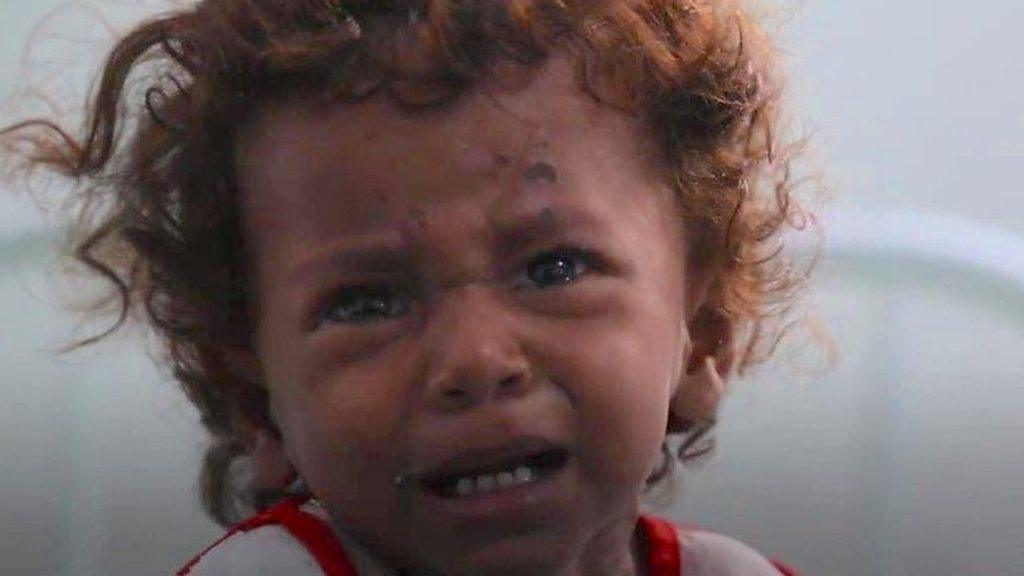Yemen war: Truce for lifeline port city of Hudaydah
- Published
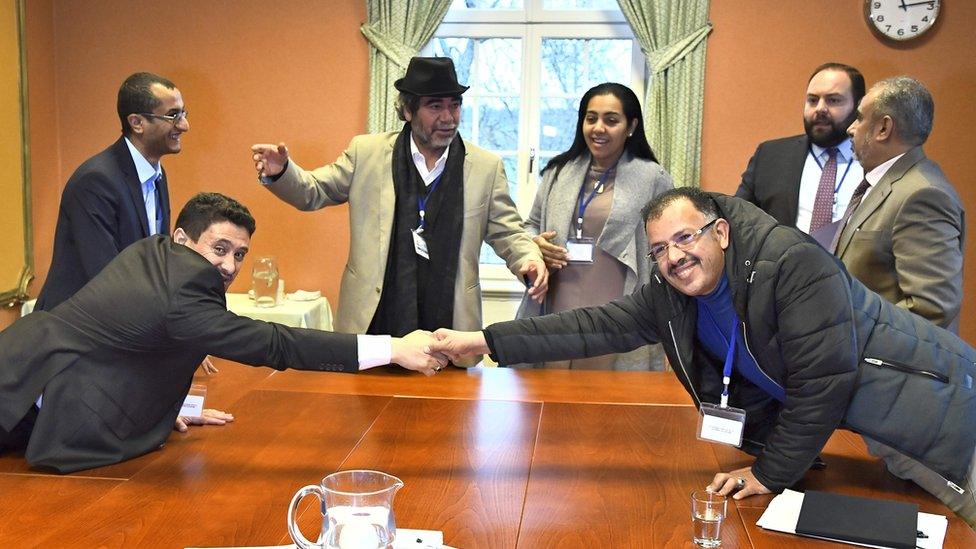
The Houthi (left ) and Yemeni government delegates shake hands in Stockholm
Warring parties in Yemen have agreed to a ceasefire for the port city of Hudaydah, principal lifeline for two-thirds of the country.
They reached agreement at talks in Sweden brokered by the United Nations.
UN Secretary General Antonio Guterres said he hoped this would be the starting point to bring nearly four years of civil war to a close.
Fighting has killed thousands, while the world's worst humanitarian crisis in recent times has afflicted millions.
Leaders of the delegations from the Yemeni government and the Houthi rebels, who control much of the country, shook hands after the ceasefire was agreed on Thursday.
Hudaydah is one of the areas controlled by the rebels.
How will the truce work?
All forces from the Houthi rebels will withdraw from Hudaydah in the coming days, as will those from the Yemeni government alliance fighting them there.
They will be replaced by what the UN called local forces.
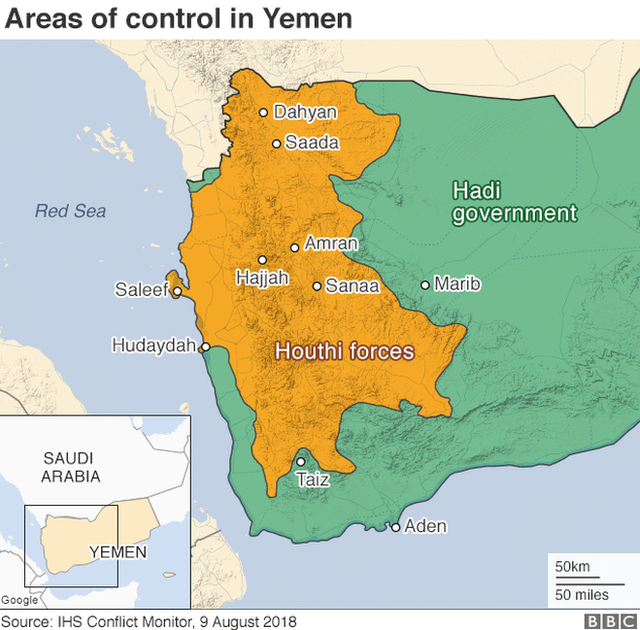

Houthi forces would also withdraw from the ports of Saleef and Ras Isa.
Mr Guterres said the ceasefire would then take place for the whole of the Hudaydah governorate.
The UN would then play a "leading role" in monitoring the ports and would help distribute aid to civilians, he added.
Thursday's agreements could "be a starting point for peace and for ending [the] humanitarian crisis in Yemen", Mr Guterres said.
What else has been agreed?
A "mutual understanding" was announced on the nation's third city of Taiz, where these has been intense fighting, although few details were released.
About two-thirds of Yemen's population is reliant on food aid
There is no agreement yet on a truce for the rest of the country, including the capital Sanaa, which is controlled by the Houthis.
Mr Guterres said he hoped for a deal within a week on reopening Sanaa airport.
He said a new round of talks would take place at the end of January on other issues.
The Stockholm talks were the first in two years between the Houthis and the Yemeni government, which has had the backing of a Saudi-led coalition since 2015.
Why is there a war in Yemen?
Yemen has been devastated by a conflict that escalated in early 2015, when the Houthis seized control of much of the west of the country and forced President Abdrabbuh Mansour Hadi to flee abroad.
Alarmed by the rise of a group they saw as an Iranian proxy, the UAE, Saudi Arabia and seven other Arab states intervened in an attempt to restore the government.
At least 6,660 civilians have been killed and 10,560 injured in the fighting, according to the United Nations. Thousands more civilians have died from preventable causes, including malnutrition, disease and poor health.
The World Health Organization warned in October that about 10,000 new suspected cases of cholera were now being reported every week.
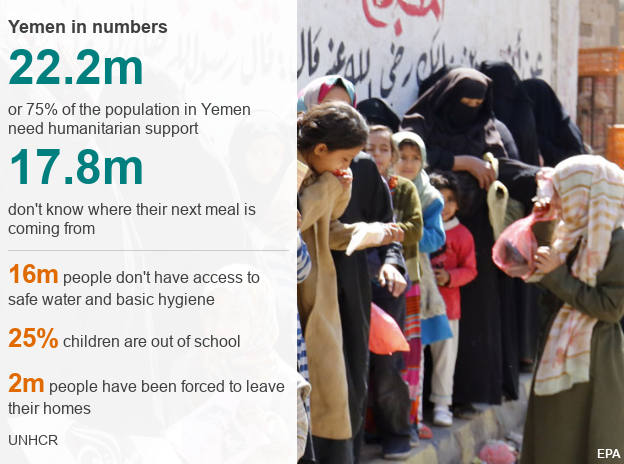

- Published13 June 2018
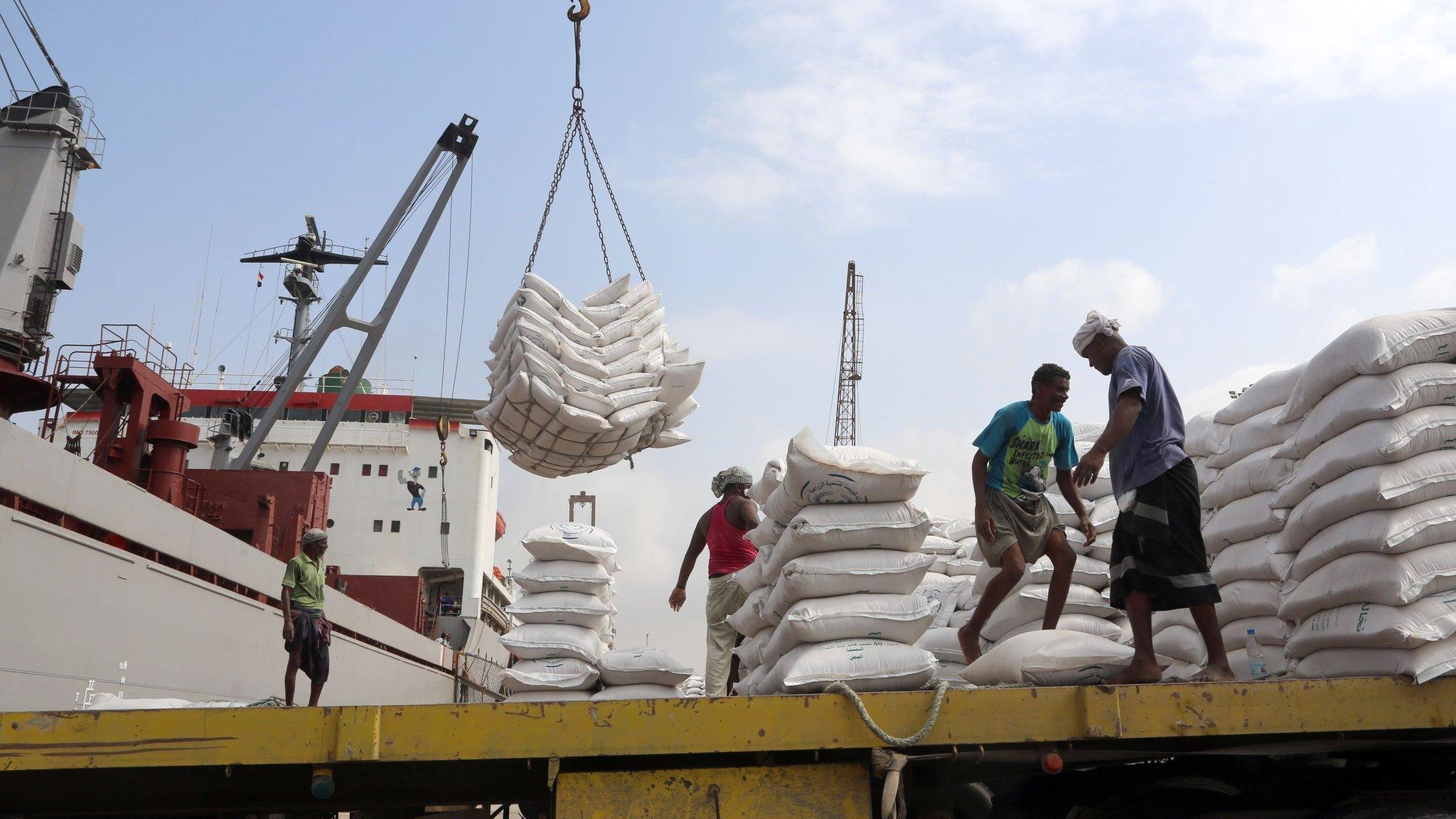
- Published13 November 2018
